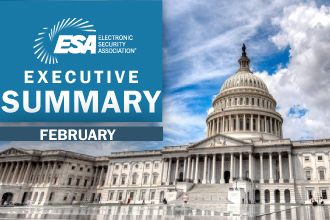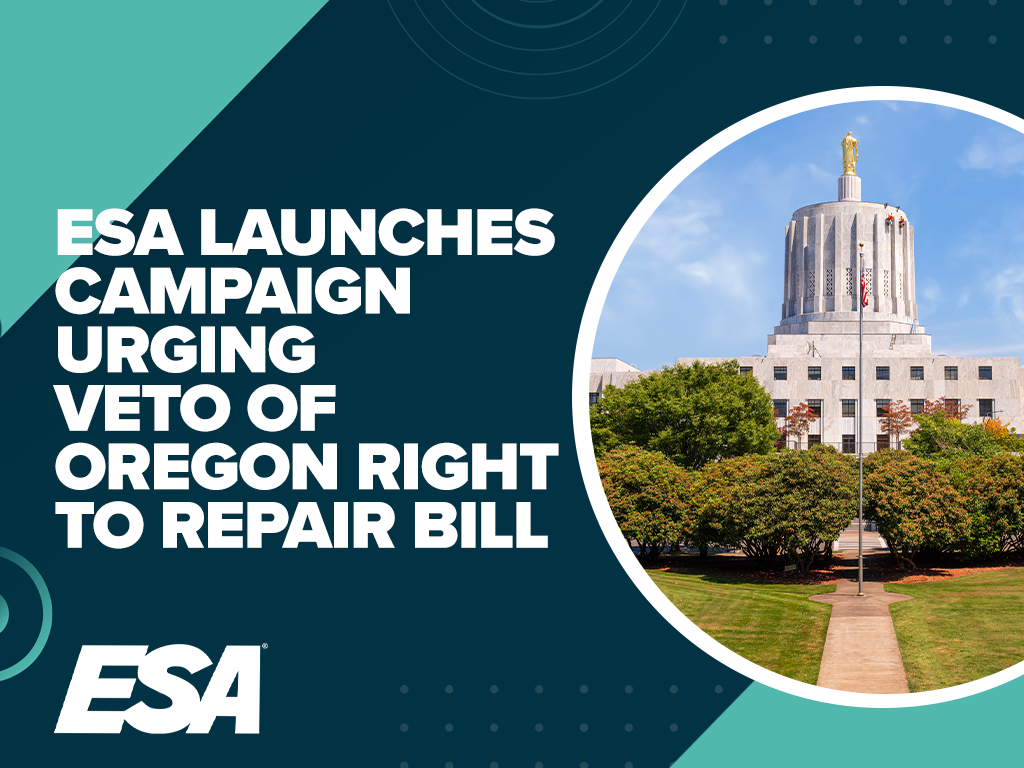This month was very busy on several different issue areas. States continue to file well-funded school security legislation. We also saw some supportive bills that will prohibit local jurisdictions from fining alarm companies and/or forcing them to collect registration fees from end-users. This month was very busy on several different issue areas. States continue to file well-funded school security legislation. We also saw some supportive bills that will prohibit local jurisdictions from fining alarm companies and/or forcing them to collect registration fees from end-users. Unfortunately, bills that continue to threaten members and the electronic security industry continue to be filed, such as "consumer choice" bills that allow persons who are unlicensed to practice virtually any profession without a license as long as weak disclosures are made.
Examples of the higher priority bills that were filed or moved in February are provided here, but don't forget to check the full monthly report for all bills in your state(s).
California AB 1289 would prohibit a city and county that requires a person who owns, leases, rents, or otherwise possesses an alarm system to obtain a local use permit to operate the alarm system from fining an alarm company for requesting dispatch to a customer, whether residential or commercial, that does not have a current local use permit if it was not the alarm company’s legal responsibility to obtain the local use permit for the customer or renew the local use permit for the customer.
Illinois SB 1695 creates a statewide fire alarm/detection license with the Fire Alarm Service Professional Licensing Act. Provides for the licensure of fire alarm contractors, installers, and technicians under the Department of Financial and Professional Regulation. Includes provisions concerning the powers and duties of the Department, licensing requirements, designated certified person requirements, and requirements for the installation, repair, inspection, and testing of fire alarm systems.
Missouri SB 500 is another state that introduced an occupational licensing "consumer choice" bill that would allow persons without active licenses regulated by the state to continue to practice their profession or trade as long as they make particular disclosures.
Nevada SB 207 prohibits a public body from awarding certain contracts for a public work to a contractor unless the contractor complies with certain requirements relating to the use of apprentices on public works or pays a monetary penalty; it prohibits a contractor on certain public works from awarding subcontracts for more than 5 percent of the value of the public work to a subcontractor unless the subcontractor complies with requirements relating to the use of apprentices on public works or pays a monetary penalty; it revises provisions relating to apprenticeship programs among other provisions.
Oklahoma SB 651 would create a "least restrictive" regulatory framework and require all occupational licensing requirements undergo a review to determine their ability to meet the health, safety and welfare needs of citizens. It allows a process for any person to challenge any or all occupational regulations with judicial review.
Tennessee SB 1443 and HB 602 would prohibit local governments from requiring an alarm contractor to pay for any permit or renewal to operate any alarm system and it would prohibit any local government from fining any alarm company for false alarms or dispatches.
Washington HB 2130 would exempt fire and security alarm monitoring systems from sales tax levies that are currently pending due to a Department of Revenue interpretation regarding these services.
School Security Funding Bills
Massachusetts HD 1985 would provide $100 million for costs associated with public safety upgrades to public higher education institutions, which include but are not limited to security cameras, door locks, active shooter detection systems, emergency communication systems, campus lighting, emergency call boxes.
Minnesota SF 1298, SF 1300 and several others are bills that would authorize varying amounts up to $500 million for fiscal years 2020-2021 from the general fund or other sources for school safety facility grants that include improvements related to violence prevention and facility security. Grants may be awarded to school districts at no more than $500,000 per school.
New Mexico SB 295 and 297 amend the public school capital outlay fund to provide up to $10 million in each of fiscal years 2019 through 2022 for school security system project grants.
Wyoming HB 203 would appropriate $6 million to increase safety and security in Wyoming's seven (7) community college campuses.




